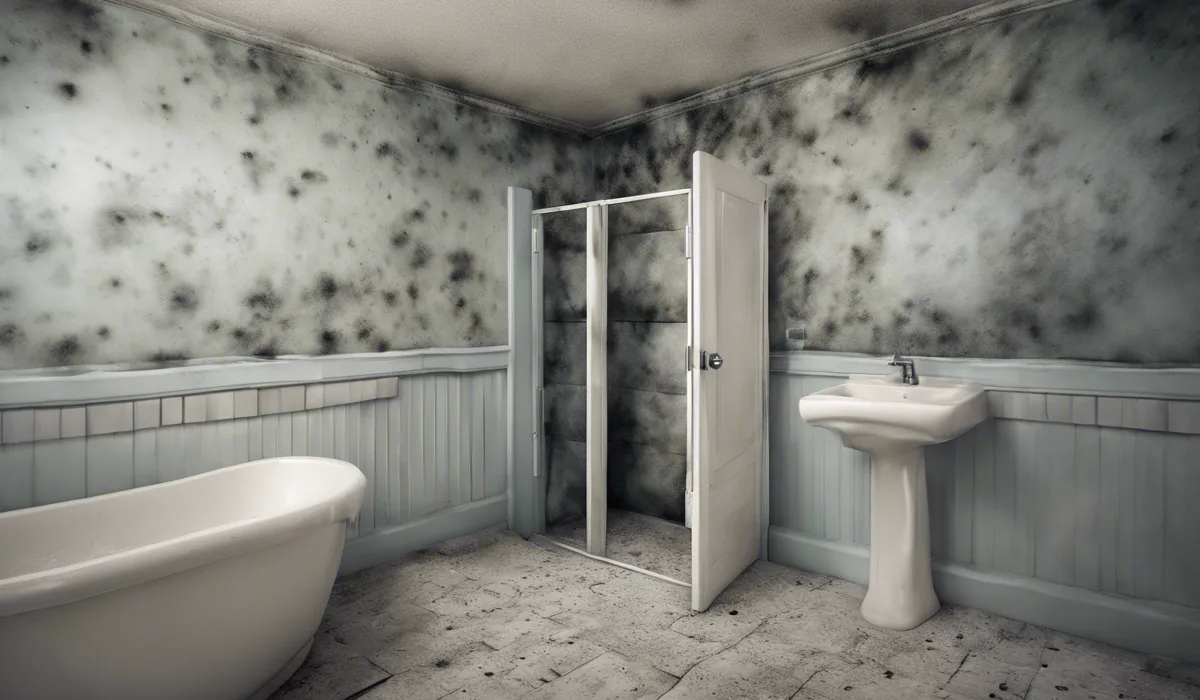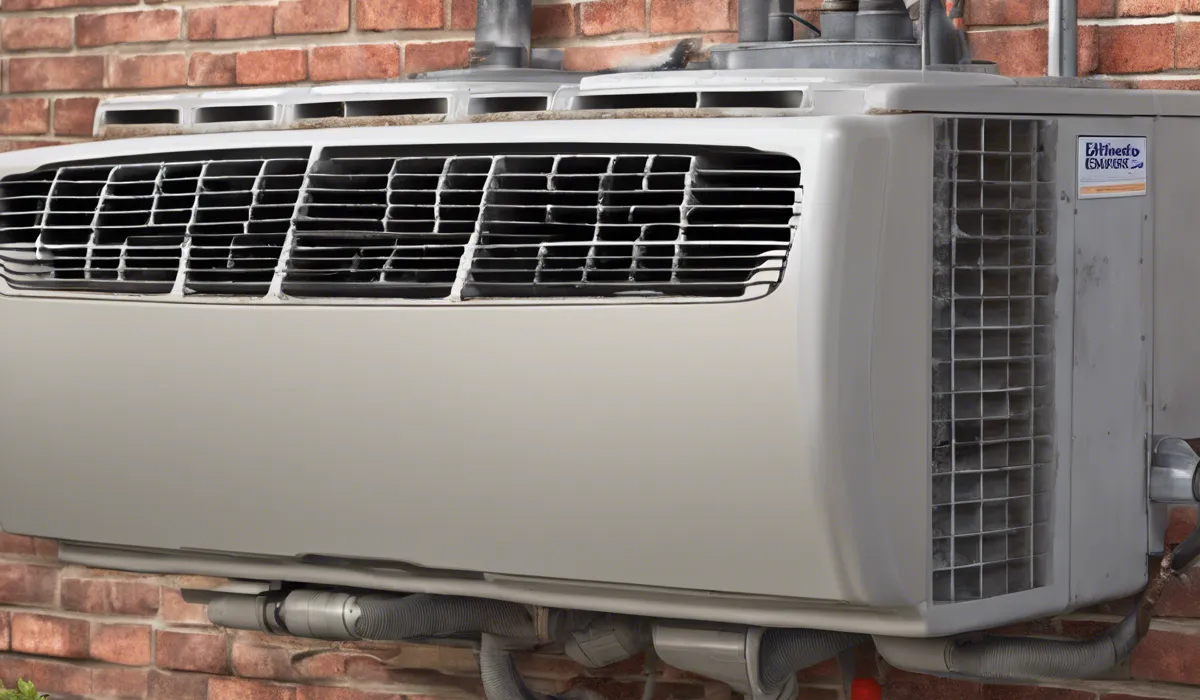Mold in AC units can release spores that may cause respiratory issues or allergies. While not directly lethal, prolonged exposure to high concentrations of mold spores can exacerbate health problems, especially in individuals with weakened immune systems or mold allergies.
Understanding Mold in Air Conditioning Systems

What is Mold?
Mold is a type of fungus. It can grow almost anywhere there is moisture and organic material.
Tiny spores float through the air, both inside and outside. When they land on damp surfaces, they can grow into the mold we see.
Mold comes in many colors, like black, green, or white. It can look fluffy, slimy, or powdery.
Common Molds in AC Units
In air conditioning systems, some molds show up more than others. Cladosporium, Penicillium, and Aspergillus are names you might hear.
These molds can grow on dust, insulation, or other materials when moisture is present.
Growth and Thriving Conditions for Mold
Mold loves damp, warm places with little light. AC units can offer the perfect spot for mold to grow.
Leaks, condensation, or high humidity can all add moisture. Dust and debris give mold food to grow on. Without good airflow, these spots stay dark and undisturbed.
Signs and Symptoms of Mold in AC Units
If your AC has mold, you might smell a musty odor. You could see spots or fuzzy growths around vents or drip pans.
Some people might start to feel sick. They could have coughing, sneezing, or headaches when the AC is on. These are signs it’s time to check your AC for mold.
Health Risks Associated with Mold Exposure

Short-Term Health Effects
When you breathe in mold spores, your body might react quickly. You could get a stuffy nose, itchy eyes, or skin rashes.
Some people might cough or wheeze. These short-term effects are like allergies and can be treated. Still, they are not fun to deal with.
Long-Term Health Consequences
Over time, breathing in mold can lead to bigger problems. Some people develop asthma or have their asthma get worse.
Others might get lung infections. Doctors are still studying mold, but they agree that it’s best to keep away from it as much as you can.
Risks for Asthma, Allergies, and Weak Immune Systems
People with asthma or allergies can get really sick from mold. Their bodies react strongly, making it hard to breathe.
Those with weak immune systems, like the very young, the elderly, or people who are sick, can get infections from mold more easily. It is very important to protect these people from mold.
Can Mold in AC Units Be Fatal?
Mold itself usually can’t kill you. But, if someone already has a very weak body, mold can make them sicker.
If the sickness gets very bad and isn’t treated, it could lead to death. This is rare, but it’s why we need to take mold seriously.
Prevention and Remediation of Mold in AC Units

Best Practices for Prevention
Keeping your AC clean and dry is the best way to stop mold. Use a good filter and change it often.
Keep humidity low in your home. Fix any leaks right away. Make sure your AC drains well, so water doesn’t sit around. All these steps help keep mold away.
Maintenance Tips for Homeowners
Check your AC often to catch any problems early. Clean or replace your filter every few months.
Look at the coils and clean them if they are dirty. Keep air vents clear. If you see any water or mold, clean it up and find out why it’s there.
Professional Mold Remediation Processes
If you find mold in your AC, you might need help from professionals. They know how to safely clean up mold.
They use special tools and follow rules to make sure the mold is gone and won’t come back. Sometimes parts of your AC might need to be replaced.
Regular AC Inspections and Cleaning
Even if you don’t see mold, having your AC checked by professionals is a good idea. They can do a deep cleaning and look for small problems before they get big. This helps keep the air in your home clean and safe for everyone to breathe.
FAQs About Mold in AC Units
Can mold in air conditioning units be fatal?
While mold in AC units is not directly lethal, it can cause serious health problems if you are exposed to high concentrations over a prolonged period, especially for those with weakened immune systems or mold allergies.
What are the health risks of mold in AC units?
Exposure to mold spores from AC units can lead to respiratory issues, allergies, and potentially exacerbate existing health conditions, particularly in susceptible individuals.
Can you get sick from mold in your AC?
Yes, mold in your AC can make you sick by causing respiratory problems and allergic reactions when you breathe in the mold spores.
Is it common for AC units to have mold?
It can be common for AC units to develop mold because they provide a damp and cool environment that is conducive to mold growth.
How can I prevent mold in my air conditioning unit?
Prevent mold in your AC unit by regularly cleaning and servicing the unit, ensuring proper drainage, and maintaining low humidity levels in your home.
Final Thoughts
Mold found in AC units can pose health risks by emitting spores that might lead to respiratory problems or trigger allergies.
Although it is not inherently fatal, prolonged exposure to mold spores, particularly in high concentrations, can significantly aggravate health conditions, especially in those with compromised immune systems or pre-existing mold sensitivities.
